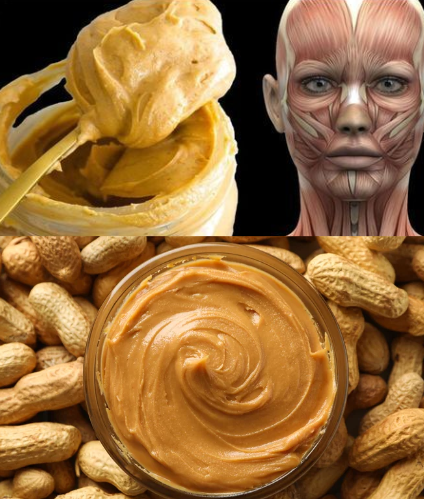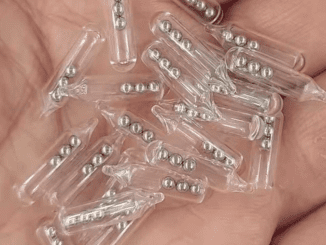
Let’s be real—peanut butter is the unsung hero of the pantry. Creamy, rich, comforting, and ridiculously versatile, it finds its way into everything from toast to smoothies to sneaky spoonfuls straight from the jar. But what actually happens when you make this beloved spread a daily habit?
Well, peanut butter isn’t just tasty—it’s surprisingly powerful. If you’re curious whether this nutty favorite is helping or hurting your health, let’s crack it wide open.
Boosts Energy That Lasts All Day
Ever hit that mid-morning slump? Peanut butter might be your secret weapon. With its combo of healthy fats, plant-based protein, and a good dose of calories, it fuels your body with slow-burning energy. Unlike sugary snacks that spike your blood sugar and send you crashing 20 minutes later, a spoonful of peanut butter sticks with you.
Pair it with a banana or whole-grain toast in the morning, and you’ve got yourself a power-packed start to the day.
Supports Muscle Repair and Growth
If you’re working out or trying to tone up, peanut butter deserves a spot in your post-gym snack lineup. It’s loaded with protein—about 8 grams per two tablespoons—which is essential for muscle repair, growth, and recovery.
Add it to a protein smoothie with oats, banana, and a splash of almond milk, and boom—you’ve got a recovery drink that tastes like dessert but works like fuel.
Keeps You Fuller, Longer
Trying to avoid those afternoon snack attacks? Peanut butter’s got your back. The combination of protein, fiber, and healthy fats helps keep you satisfied. That means fewer cravings, less grazing, and better portion control throughout the day.
It’s a great trick for managing weight without feeling deprived. Just be mindful of the serving size—this stuff is rich!
Packed with Heart-Healthy Fats
Here’s the good kind of fat you should be eating. Peanut butter is rich in monounsaturated fats, which can lower LDL (bad) cholesterol and support overall cardiovascular health. Studies have shown that nut consumption is linked to a reduced risk of heart disease—and peanut butter fits the bill, as long as you skip the processed junk.
So yes, peanut butter can actually help your heart—when enjoyed in moderation.
Loaded with Essential Vitamins and Minerals
Beyond fat and protein, this creamy spread packs a punch when it comes to micronutrients. You’ll find:
- Vitamin E – an antioxidant that protects your cells
- Magnesium – helps with muscle function and energy production
- Potassium – supports heart and kidney health
- B Vitamins – crucial for brain function and metabolism
It’s more than just a snack—it’s legit nourishment for your body.
Video : What Happens When You Start Eating Peanut Butter Everyday
May Support Brain Health and Cognitive Function
You’ve probably heard that healthy fats are brain food—and it’s true. The monounsaturated fats in peanut butter may help protect brain cells, improve memory, and reduce the risk of cognitive decline as we age. Plus, the vitamin E content has been shown to help with focus and clarity.
Who knew your PB&J could help keep your brain sharp?
But Wait—There’s a Catch… Or Three
Before you eat peanut butter by the spoonful, there are a few important caveats to keep in mind.
Calorie Creep Is Real
Peanut butter is dense. Like, nearly 200 calories per 2 tablespoons dense. While that’s great for energy, it can sabotage your goals if you’re not paying attention. A “small” scoop can easily become a few extra hundred calories without realizing it.
Want the benefits? Stick to 1–2 tablespoons a day.
Not All Peanut Butters Are Created Equal
Many store-bought brands sneak in added sugars, hydrogenated oils, and other junk that undermine the health perks. These added ingredients can turn a wholesome food into a not-so-great choice.
Read the label. Look for versions that contain just peanuts and maybe a pinch of salt. That’s it.
Watch Out for Peanut Allergies
Let’s not sugarcoat this: for people with peanut allergies, even trace amounts can be life-threatening. If you or someone in your home has an allergy, this isn’t something to experiment with.
If you’re not sure whether you’re allergic, always talk to your doctor first before introducing peanuts to your diet.
How to Enjoy Peanut Butter the Healthy Way
Okay, so you’re convinced. Peanut butter is awesome—but how do you make it work for you?
Here are a few quick tips:
🥄 Stick to 1–2 tablespoons daily. That’s enough to enjoy the benefits without going overboard.
🥄 Choose natural peanut butter with zero added sugar or oils.
🥄 Balance it out. Pair it with fiber-rich fruits like apples or whole grains like oats and whole-wheat bread.
🥄 Add it to smoothies for creaminess, protein, and staying power.
🥄 Spread it, stir it, spoon it—but don’t chug it. Moderation is key.
Video : Do Not Eat Peanut Butter Until You Watch This!
Final Thoughts: Should You Eat Peanut Butter Every Day?
Absolutely—as long as you do it smartly. Peanut butter is a legit superfood when it’s the real deal. It can boost energy, support muscle growth, keep your heart healthy, and even protect your brain.
But the key? Quality and quantity. Stick to natural versions, keep your portions in check, and pair it with whole, nutritious foods.
So go ahead, enjoy that spoonful of peanut butter with zero guilt. Your body—and your taste buds—will thank you. 🥜


